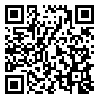Volume 1, Issue 1 (Spring 2025)
2025, 1(1): 36-53 |
Back to browse issues page
Download citation:
BibTeX | RIS | EndNote | Medlars | ProCite | Reference Manager | RefWorks
Send citation to:



BibTeX | RIS | EndNote | Medlars | ProCite | Reference Manager | RefWorks
Send citation to:
Tahmasebi A, Sharifi L, Askari Bezayeh F. (2025). An analysis on the organizational cooperation network of tourism service offices in Rasht city. Geography and Tourism Planning. 1(1), 36-53.
URL: http://gtp.khu.ac.ir/article-1-23-en.html
URL: http://gtp.khu.ac.ir/article-1-23-en.html
1- Kharazmi University , asghar@khu.ac.ir
2- Kharazmi University
3- Gilan Agricultural and Natural Resources Research Center
2- Kharazmi University
3- Gilan Agricultural and Natural Resources Research Center
Abstract: (1097 Views)
| In the realm of tourism, service offices play a pivotal role, significantly shaping market dynamics and enhancing the competitiveness of tourist destinations. However, their organizational cooperation and collaboration have been underexplored in previous studies. To address this gap, our research focuses on analyzing the cooperation network among tourism service offices in Rasht city, considering their field of work and types of licenses. Data from 40 offices were collected through questionnaires and interviews, forming the basis for a cooperation matrix. Leveraging social network analysis techniques, we found that experienced offices (with licenses A, B, and P) exhibit less inclination toward collaboration, while younger offices (holding licenses A and B, or B and P) actively engage and aspire to become reference points for joint efforts. Notably, offices with licenses B and B and P express a strong interest in expanding their participation. Our recommendations emphasize utilizing high in-degree centrality offices for effective network management and actively involving younger offices with high betweenness centrality to enhance overall network coherence and coordination. |
Keywords: Tourism, organizational cooperation, network analysis, Tourism service offices, Rasht city
Type of Study: Research |
Subject:
Special
Received: 2024/05/1 | Accepted: 2024/10/22 | Published: 2024/11/2
Received: 2024/05/1 | Accepted: 2024/10/22 | Published: 2024/11/2
Article [PDF 1842 KB] (70 Download)
Send email to the article author
| Rights and permissions | |
 |
This work is licensed under a Creative Commons Attribution-NonCommercial 4.0 International License. |






